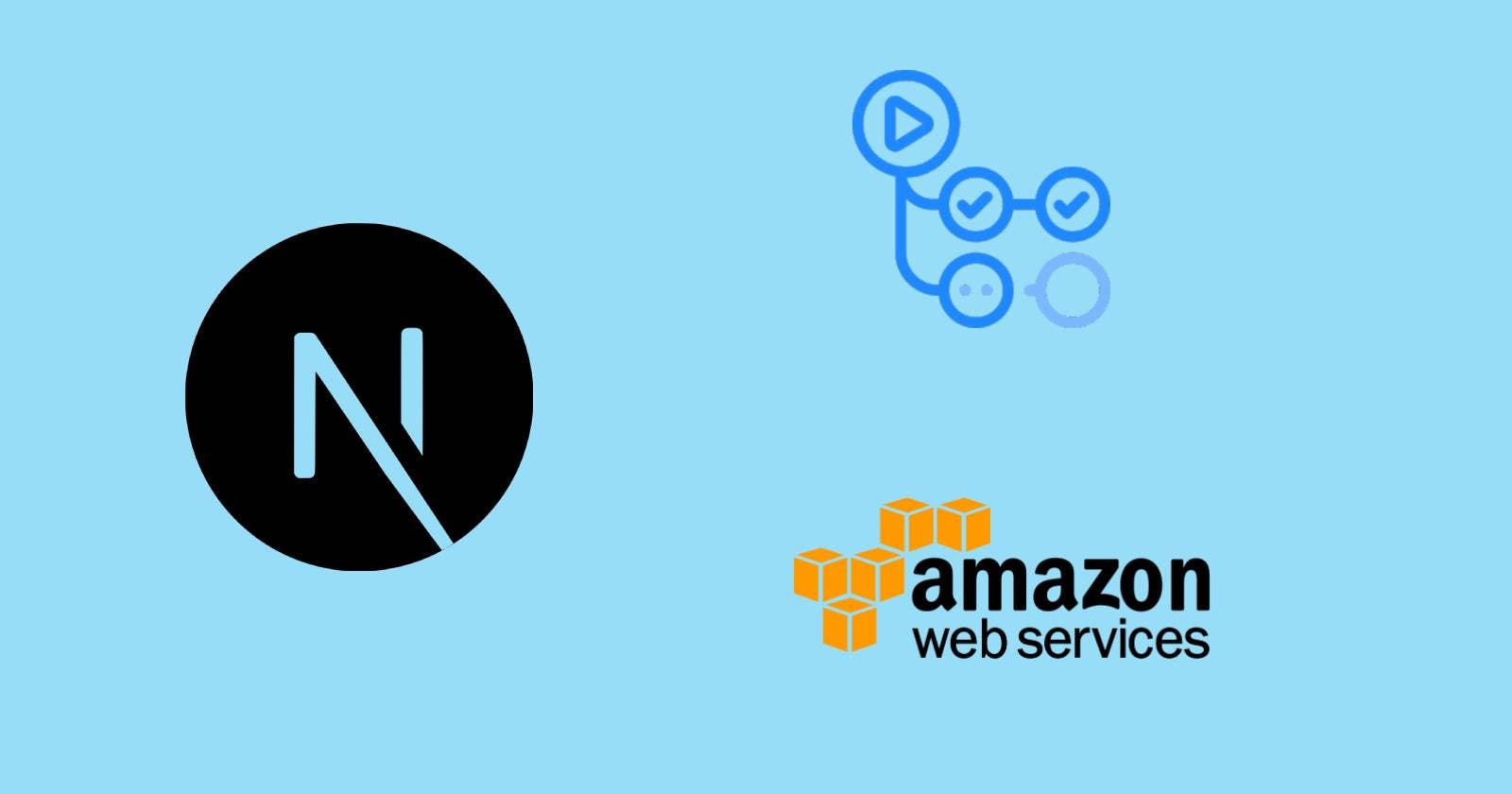Create IAM Role
Create Role for EC2
Click on Create Role
Select EC2
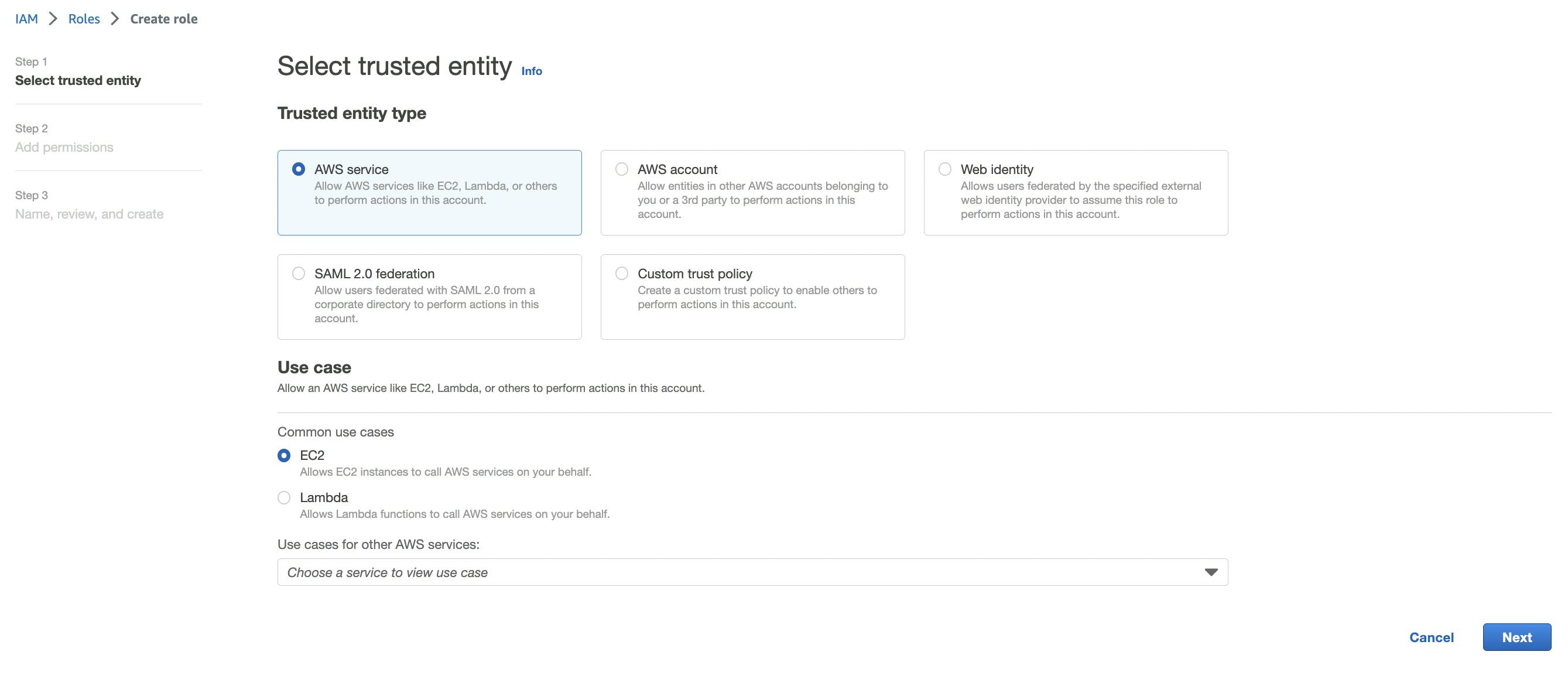
Click Next
Add AmazonS3ReadOnlyAccess Permissions

Enter RoleName\=MyEC2Role
Create Role for Codedeploy
Click on Create Role

Click on next

Click next
RoleName:- My-codedeployeRole
Click on create
Create S3 Bucket
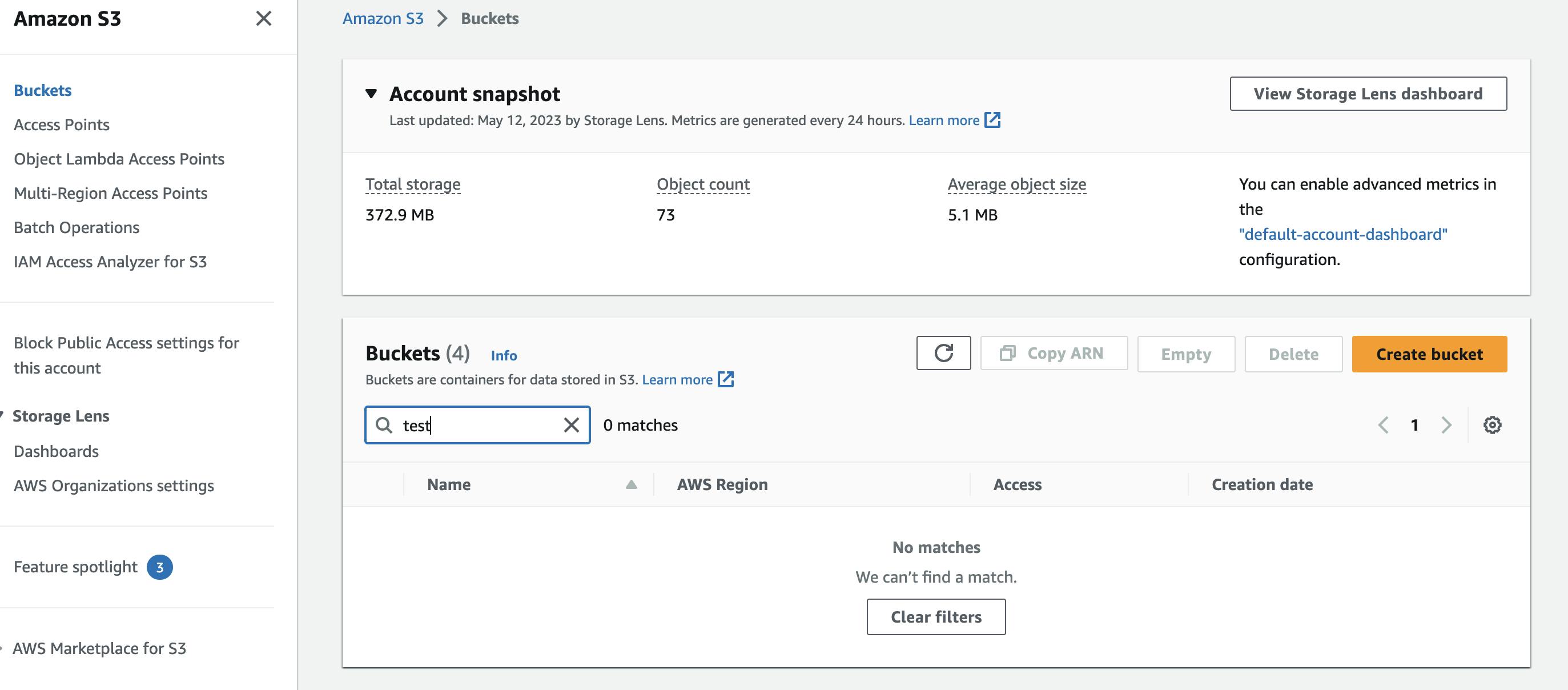
Click on Create bucket
Bucket name:- myfrontendbuild
Note:- Bucket name is globally unique so in your case, this should be different
click on create bucket
Create Server
Name and tags: TestServer
Application and OS Images: Ubuntu
Key Pair: Create Key pair file :- TestServerNew.pem for the Login
Network Setting
Create security group
Allow SSH traffic from : Anywhere
Allow HTTP traffic
Allow HTTPS traffic
Advanced details
IAM instance profile: MyEC2Role
User data
#!/bin/bash sudo apt-get update sudo apt-get install -y ruby sudo apt-get install -y wget cd /home/ubuntu wget https://aws-codedeploy-us-east-1.s3.us-east-1.amazonaws.com/latest/install chmod +x ./install sudo ./install autoNote:- Here we are installing AWS codedeploy agent
Click on Launch Instant
Wait Once EC2 Instant start
Create Deployment
Create application
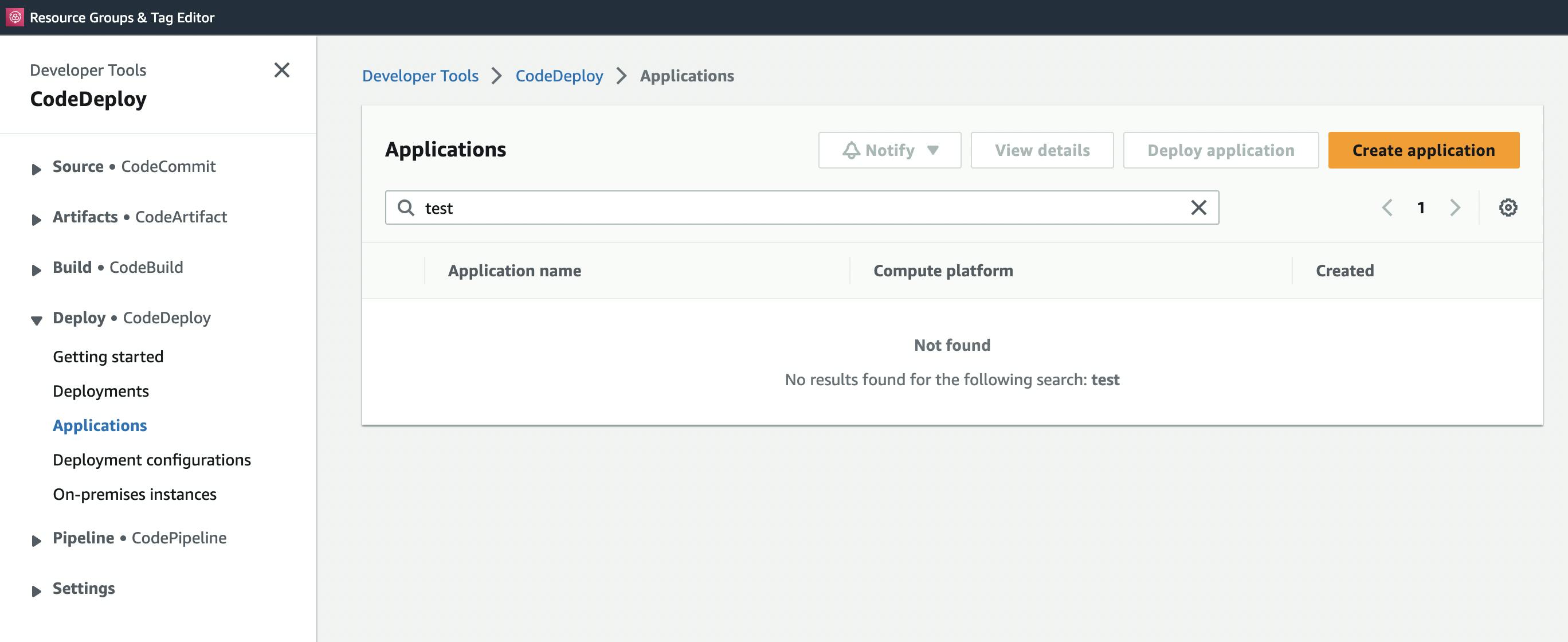
Click on Create an application
Application name:- frontend
Compute platform:- EC2
Click on Create
Create deployment group
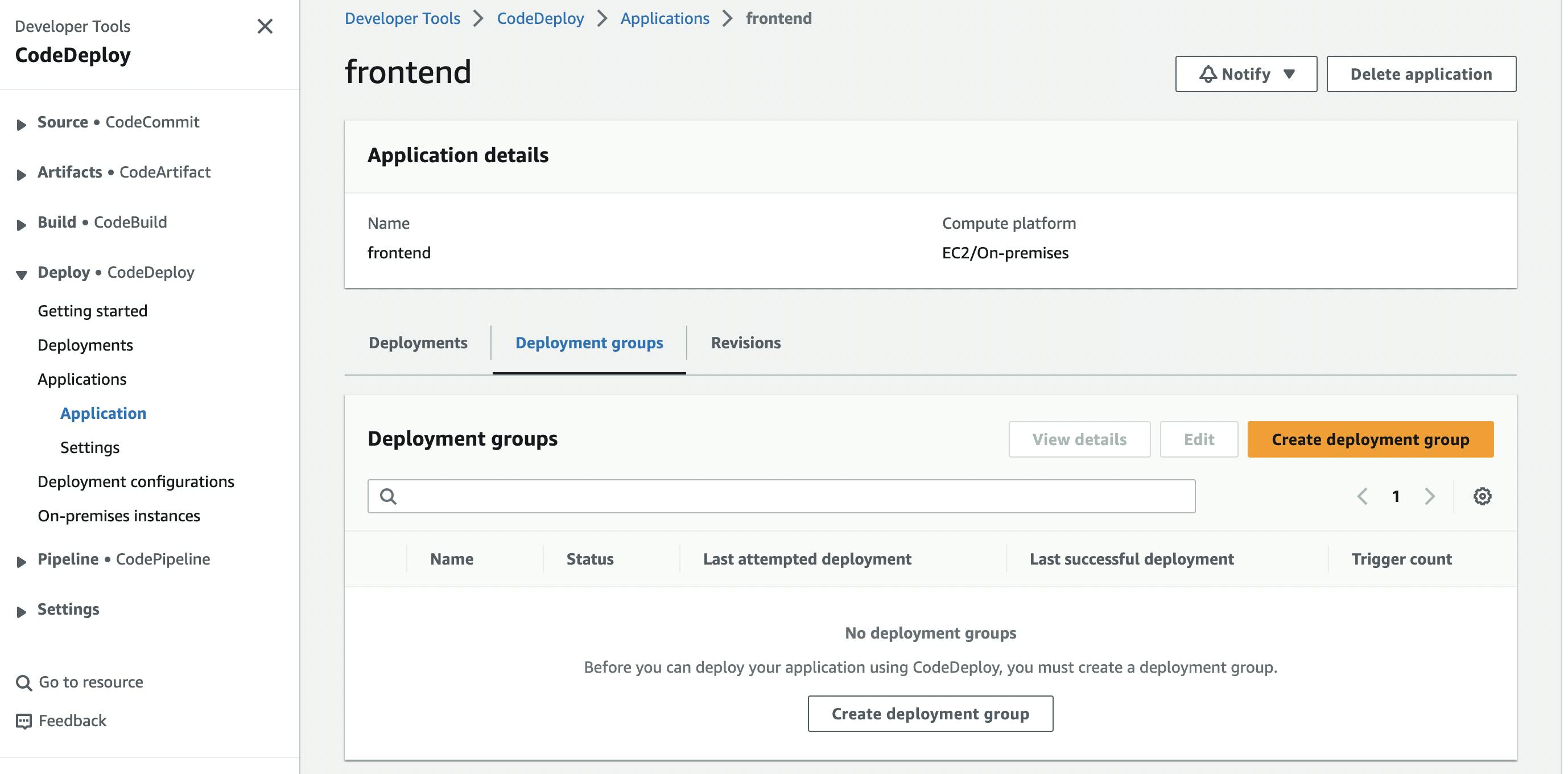
Click on create Deployment group
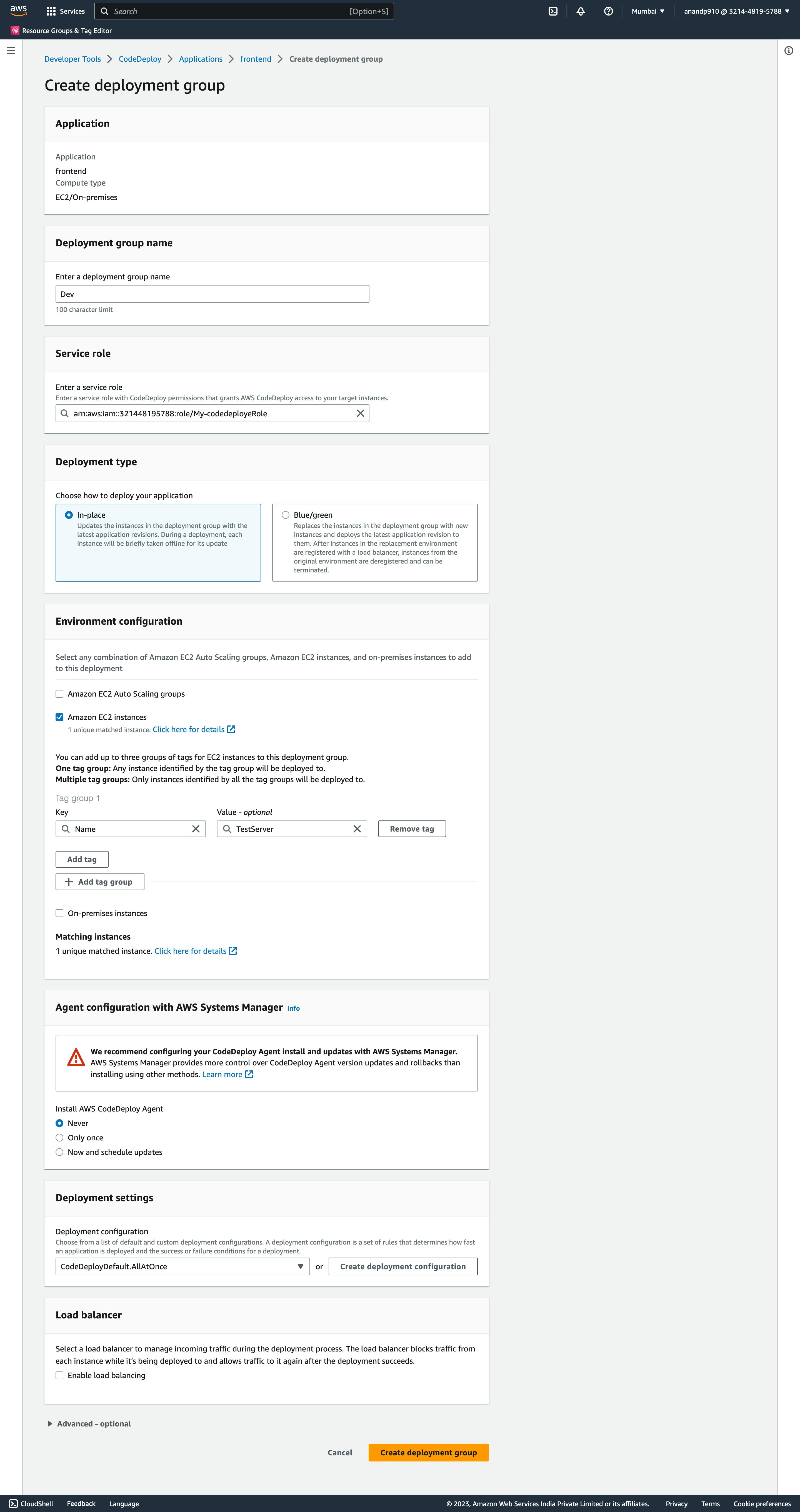

Create IAM User
Creating IAM User for GitHub codedeploy
Go to IAM
Click on Policies
Click on Create Policies
Click on JSON
Copy the below JSON & Replace the Resource URL
Note:- Here Resource URL you will get from
-> 1st Resource ARN get from s3 bucket bucket -> click on Properties
-> 2nd Resource ARN get from Codedeploy -> click on Applications -> click on frontend App -> click on deployment group Dev
{ "Version": "2012-10-17", "Statement": [ { "Effect": "Allow", "Action": [ "s3:Get*", "s3:List*", "s3:PutObject", "s3:ListMultipartUploadParts", "s3:AbortMultipartUpload" ], "Resource": ["arn:aws:s3:::myfrontendbuild/*"] }, { "Action": [ "codedeploy:Batch*", "codedeploy:Get*", "codedeploy:List*", "codedeploy:RegisterApplicationRevision", "codedeploy:CreateDeployment" ], "Effect": "Allow", "Resource": ["arn:aws:iam::321448195788:role/My-codedeployeRole"] } ] }
Click next
Policy name:- MyGithubCodedeplyPolicy
Click on create policy
Click on Create user
UserName:- githubCodedeploy
Click on Attach policies directly
Click Next Create User
Click on githubCodedeploy User
Go to Tab Security credentials
Click on Create access-key
Click Command Line Interface (CLI)
Click next
Copy Access key & Access secret Details This we will add in Github variables
Github
Setup Environment
- Here we can add environment variable which we will user in .env file

Here we will store secrets variables like AWS details we get while creating user
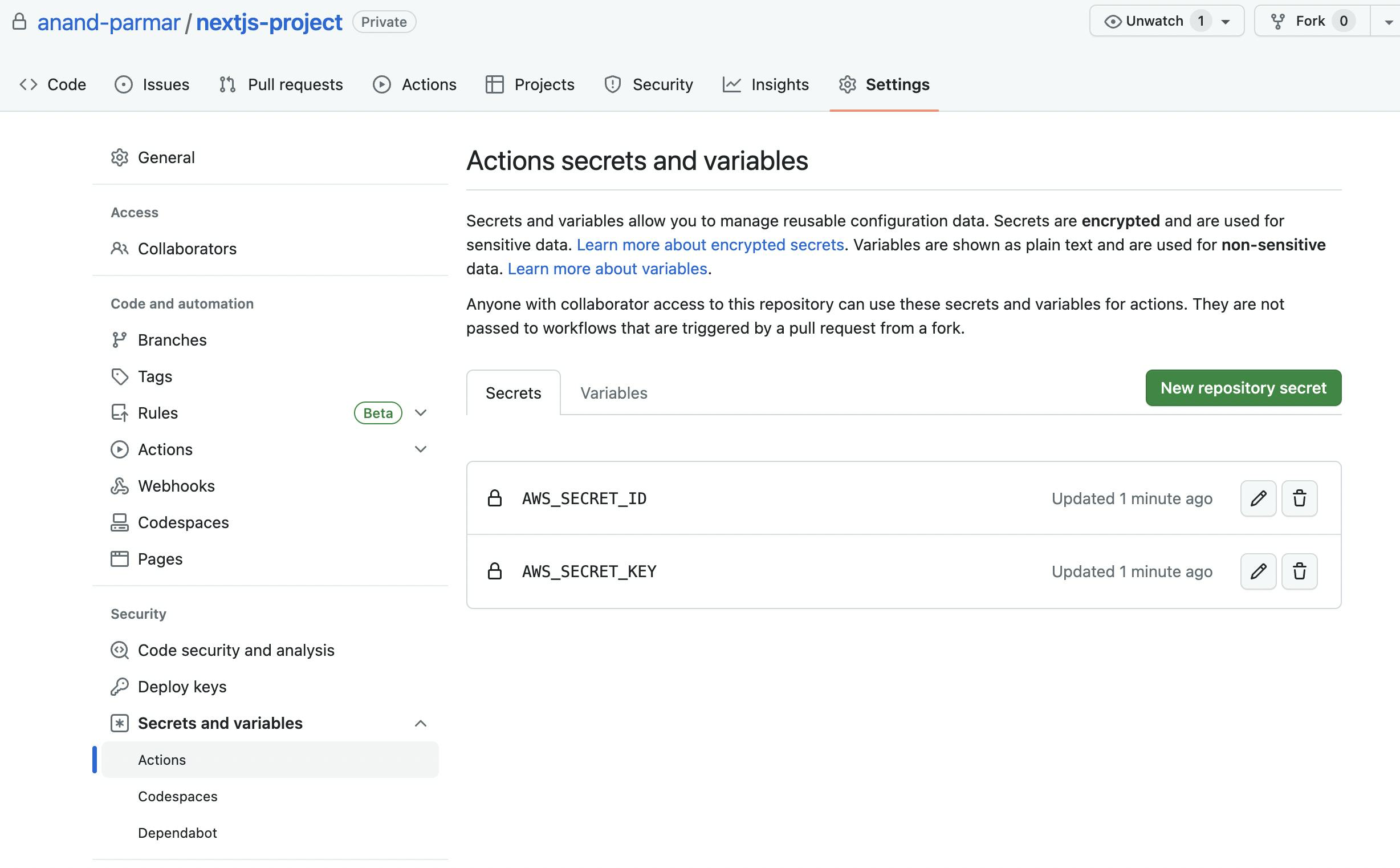
Repository URL:- https://github.com/anand-parmar/nextjs-project
Workflow
.github/workflows/node.js.yml
name: DEV Node.js CI on: push: branches: ["main"] jobs: build: name: Build runs-on: ubuntu-latest strategy: matrix: node-version: [16.x] steps: - uses: actions/checkout@v3 - name: Use Node.js ${{ matrix.node-version }} uses: actions/setup-node@v3 with: node-version: ${{ matrix.node-version }} - name: Create .env file uses: ozaytsev86/create-env-file@v1 with: ENV_API_URL: ${{ vars.API_URL }} - name: "Build project" run: | yarn install yarn build rm -r node_modules - name: AWS CodeDeploy uses: sourcetoad/aws-codedeploy-action@v1 with: aws_access_key: ${{ secrets.AWS_SECRET_ID }} aws_secret_key: ${{ secrets.AWS_SECRET_KEY }} aws_region: ap-south-1 codedeploy_name: frontend codedeploy_group: Dev codedeploy_register_only: false s3_bucket: myfrontendbuild s3_folder: dev max_polling_iterations: 0 directory: ./Here we are doing a build of NextJS & Deploying to AWS using Codedeploy Service
-
version: 0.0 os: linux files: - source: / destination: /var/frontend/ overwrite: true file_exists_behavior: OVERWRITE hooks: BeforeInstall: - location: scripts/before-install.sh timeout: 300 runas: root AfterInstall: - location: scripts/after-install.sh timeout: 300 runas: root ApplicationStart: - location: scripts/application-start.sh timeout: 300 runas: root scripts/before-install.sh
Here we are installing node, yarn & pm2
#!/bin/bash curl -o- https://raw.githubusercontent.com/nvm-sh/nvm/v0.35.3/install.sh | bash export NVM_DIR="$HOME/.nvm" [ -s "$NVM_DIR/nvm.sh" ] && \. "$NVM_DIR/nvm.sh" # This loads nvm [ -s "$NVM_DIR/bash_completion" ] && \. "$NVM_DIR/bash_completion" nvm install 16.14.2 npm install --global yarn npm install pm2 -g ln -sf $(which npm) /usr/local/bin/npm ln -sf $(which node) /usr/local/bin/node ln -sf $(which yarn) /usr/local/bin/yarn ln -sf $(which pm2) /usr/local/bin/pm2scripts/after-install.sh
Installing packages
#!/bin/bash cd /var/frontend/ rm -r node_modules/ yarn installscripts/application-start.sh
pm2 restart if pm2 already exist else start pm2 service
#!/bin/bash pm2 describe app > /dev/null RUNNING=$? if [ "${RUNNING}" -ne 0 ]; then pm2 start yarn --name app -- start else pm2 reload app fi;Once you commit code in GitHub. Workflow will start building project and transfer that build Zip to S3 & AWS Codedeploy will start


After codedeploy succeed you can check the Website by
http://<Public IPv4 address\>:4000/
